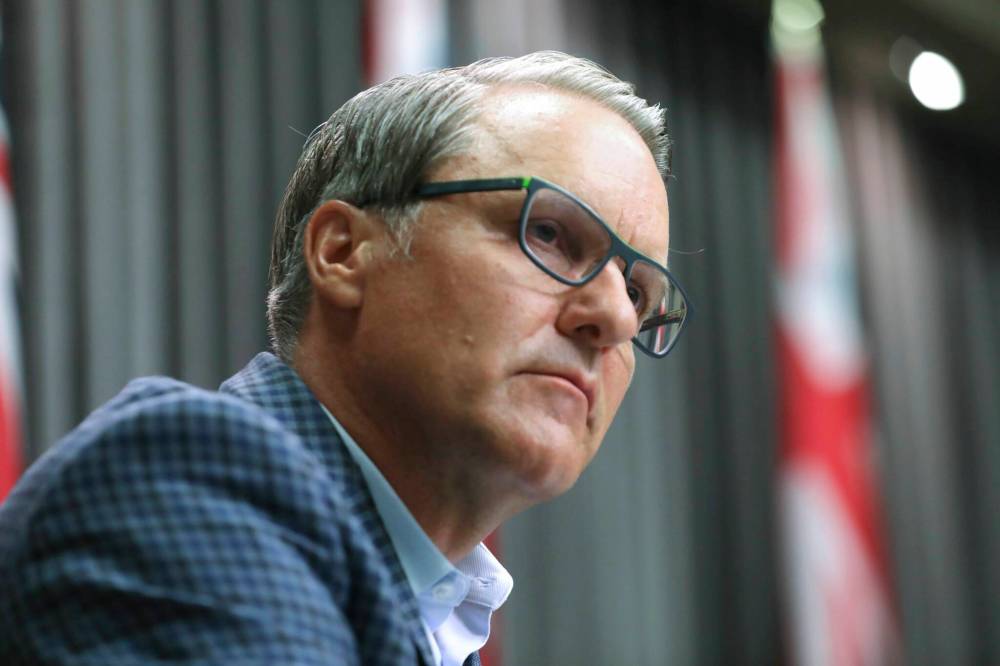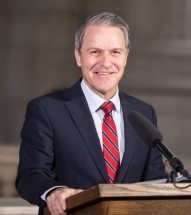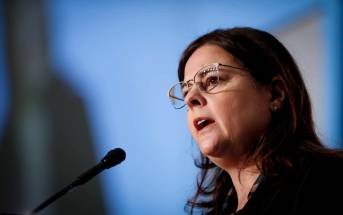Blaming Ottawa won’t fix Manitoba’s health care
Read this article for free:
or
Already have an account? Log in here »
To continue reading, please subscribe:
Monthly Digital Subscription
$0 for the first 4 weeks*
- Enjoy unlimited reading on winnipegfreepress.com
- Read the E-Edition, our digital replica newspaper
- Access News Break, our award-winning app
- Play interactive puzzles
*No charge for 4 weeks then price increases to the regular rate of $19.00 plus GST every four weeks. Offer available to new and qualified returning subscribers only. Cancel any time.
Monthly Digital Subscription
$4.75/week*
- Enjoy unlimited reading on winnipegfreepress.com
- Read the E-Edition, our digital replica newspaper
- Access News Break, our award-winning app
- Play interactive puzzles
*Billed as $19 plus GST every four weeks. Cancel any time.
To continue reading, please subscribe:
Add Free Press access to your Brandon Sun subscription for only an additional
$1 for the first 4 weeks*
*Your next subscription payment will increase by $1.00 and you will be charged $16.99 plus GST for four weeks. After four weeks, your payment will increase to $23.99 plus GST every four weeks.
Read unlimited articles for free today:
or
Already have an account? Log in here »
Hey there, time traveller!
This article was published 20/12/2022 (1082 days ago), so information in it may no longer be current.
Premier Heather Stefanson wants Manitobans to believe a lack of funding from the federal government is the main reason the province’s health care system is failing in multiple areas.
Ms. Stefanson has been banging that drum louder than usual since assuming the role of chair of the Council of the Federation in September. The alliance of premiers and territorial leaders is demanding Ottawa boost health-care funding to 35 per cent of total costs, up from the current 22 per cent.
What Ms. Stefanson is less inclined to reveal is that her Progressive Conservative government has deliberately underfunded health care since it came into power in 2016, even though it has had the resources to do otherwise.
According to the province’s public accounts, the Manitoba government’s spending on health care has increased by less than two per cent per year over the past four years, excluding expenditures related to the COVID-19 pandemic.
THE CANADIAN PRESS FILES Manitoba Premier Heather Stefanson wants Manitobans to believe a lack of funding from the federal government is the main reason the province’s health care system is failing in multiple areas.
Excluding pandemic costs, the province spent $7.08 billion on health care in 2021-22. That’s an increase of $520 million from the $6.56 billion the province spent in 2017-18 — an average annual increase of only 1.9 per cent. It’s a stingy amount that falls well short of addressing chronic hospital understaffing, long wait lists and a severe doctor shortage, particularly in rural Manitoba.
It’s especially inadequate given the province’s aging population, which is putting increased pressure on hospitals, home care and personal-care homes.
Ms. Stefanson blames the federal government for that funding shortfall. However, during the same period, health-care transfers from Ottawa to Manitoba increased on average 3.8 per cent a year, bringing the federal contribution to $1.57 billion in 2021-22.
That does not include additional federal funding for pandemic relief. It also doesn’t include the $900-million annual boost in equalization payments Manitoba received from Ottawa during that period.
Instead of using that funding and other own-source revenues to provide the health-care system with adequate funding, the Tories cut taxes as part of their “$2,020 tax rollback guarantee.” According to Finance Minister Cameron Friesen, total tax cuts since 2016 are worth over $1.1 billion a year.
RUTH BONNEVILLE / WINNIPEG FREE PRESS FILES According to Finance Minister Cameron Friesen, total tax cuts since 2016 are worth over $1.1 billion a year.
That’s $1.1 billion a year in revenue that could have been spent on front-line services, including health care. The Tories made a choice to forgo that revenue. Now they’re blaming Ottawa for shortchanging them on health-care funding.
There is a good case to be made for the federal government to boost health-care transfers to the provinces beyond current annual increases. There is also sound reasoning behind the federal government’s demand that any increase should come with strings attached to ensure the money is spent wisely.
Ottawa is willing to boost transfers as long as the provinces agree to be accountable for the additional resources, including improving data collection to better gauge health outcomes. So far, the provinces, including Manitoba under Ms. Stefanson’s leadership, have been unwilling to accept those conditions. They want more funding, but refuse to be open and transparent about how it’s spent.
Ottawa is willing to boost transfers as long as the provinces agree to be accountable for the additional resources, including improving data collection to better gauge health outcomes.
In the end, the provinces control health-care budgets, not Ottawa. The Manitoba government has the resources to significantly boost spending on health care, even without higher health-care transfers from Ottawa. And the province is expecting a $577-million increase in equalization payments from Ottawa in 2023, by far the largest in at least 10 years.
It should use those resources in the 2023 budget to ensure the health-care system is getting the funding it needs.
Blaming Ottawa won’t improve the system here.












